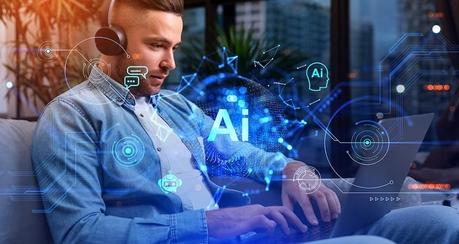
The world of technology is abuzz with the potential of quantum computing, a groundbreaking field that is set to revolutionize numerous domains. Among the fields poised to be significantly transformed by quantum computing, artificial intelligence (AI) stands out. In this article, we will explore the fundamentals of quantum computing, its synergy with AI, its potential impact on AI applications, the challenges and limitations, and the ethical considerations associated with this technological leap.
How Does Quantum Computing Work?
To understand how quantum computing works, it's essential to grasp the concept of quantum bits or qubits. Quantum bits are analogous to classical bits, but with unique quantum properties. Unlike classical bits, which can represent either 0 or 1, qubits can exist in a superposition of both states simultaneously. This means that a qubit can represent a 0, a 1, or any quantum superposition of these states. Superposition allows quantum computers to explore multiple possibilities at the same time, making them inherently more powerful for specific types of calculations.
Quantum Computing Fundamentals
Quantum computing is underpinned by three fundamental principles: qubits, superposition, and entanglement. These concepts, when combined with quantum gates, pave the way for quantum supremacy, poised to revolutionize AI and computation.
Explanation of Qubits and Superposition
At the core of quantum computing are qubits, the quantum counterparts of classical bits. Unlike classical bits, which can only represent 0 or 1, qubits can exist in multiple states simultaneously through superposition. This foundational concept enables quantum computers to explore numerous possibilities in parallel.
Quantum Entanglement and its Significance
Entanglement, another critical quantum principle, results in correlated states between entangled qubits, even when they are physically separated. This unique property empowers quantum computers to perform complex calculations by utilizing the collective information from entangled qubits.
Quantum Gates and Quantum Circuits
Quantum gates, akin to classical logic gates, are the essential building blocks of quantum circuits. They manipulate qubits and their states, enabling the execution of quantum algorithms. Quantum circuits are sequences of quantum gate operations and form the backbone of quantum computation.
Quantum Supremacy and its Implications
Quantum supremacy is the milestone where quantum computers outperform the most powerful classical supercomputers in certain tasks. This achievement represents a significant leap in quantum computing's capabilities and holds the potential to excel in AI-related applications, ushering in a new era of computation.
Potential Impact on AI Applications
The integration of quantum computing and AI promises transformative changes across sectors. It accelerates healthcare and drug discovery, enhances finance and risk analysis, empowers multilingual natural language processing, and optimizes robotics for greater safety and efficiency.
Healthcare and Drug Discovery
Quantum computing's ability to accelerate complex simulations holds great promise for the healthcare industry. Molecular simulations and drug discovery, which involve computationally intensive tasks, can benefit from the speed and power of quantum computing. The potential for personalized medicine and disease prediction is also a significant application.
Finance and Risk Analysis
In the financial sector, quantum computing can help optimize portfolio management, enhance fraud detection, and improve risk assessment. These tasks often involve processing vast datasets and solving complex optimization problems, which quantum computers can handle more efficiently.

Natural Language Processing
Quantum computing can boost natural language processing applications by speeding up language translation, sentiment analysis, and the performance of chatbots. Real-time multilingual communication and more accurate language understanding are within reach.
Robotics and Autonomous Systems
In robotics and autonomous systems, quantum computing can lead to faster path planning and optimization. AI-driven self-driving cars and robotic systems can benefit from quicker decision-making processes, making them safer and more efficient.
Speeding up AI Algorithms
Quantum computers have the potential to solve certain problems much faster than classical computers. This speedup could benefit AI in various ways, such as speeding up optimization algorithms used in machine learning, enabling quicker training of deep neural networks, and accelerating the execution of complex AI models.
Cryptography and AI security
The development of powerful quantum computers could have implications for AI security. Quantum computers have the potential to break widely used encryption schemes, such as RSA and ECC. As a result, AI systems and their data may need to be secured using post-quantum cryptography, which involves AI in the development of new encryption techniques.
Current Challenges in AI
AI has made significant strides in recent years, but it also faces various challenges, many of which are related to the limitations of classical computing.
- Computational Limitations in Classical Computing: Classical computers, while powerful, have finite computational capabilities. They struggle to handle certain AI tasks, such as simulating the behavior of complex biological systems or optimizing large-scale logistics operations.
- Complexity of AI Algorithms and Deep Learning: Modern AI algorithms, particularly deep learning models, require extensive computational resources for training and inference. The sheer complexity of these algorithms can lead to extended training times and computational bottlenecks.
- Energy Efficiency Concerns in Large-Scale AI Models: Large-scale AI models, like those used in natural language processing and computer vision, demand substantial amounts of energy. This raises concerns about sustainability and the environmental impact of AI research and development.
Quantum Computing and AI Synergy
The fusion of quantum computing and AI offers groundbreaking advancements, with speed and performance enhancements, quantum machine learning algorithms, and revolutionary optimization techniques, revolutionizing the AI landscape.
Speed and Performance Enhancements
One of the most promising aspects of quantum computing's impact on AI is the significant speed and performance enhancements it offers. Quantum parallelism allows quantum computers to explore multiple potential solutions to complex AI problems simultaneously, greatly accelerating computations.
Quantum Machine Learning Algorithms
Quantum machine learning algorithms are specifically designed to leverage the power of quantum computing. These algorithms include quantum support vector machines and quantum neural networks, which can outperform their classical counterparts in various AI tasks.
Enhanced Optimization Techniques
Optimization is a critical aspect of many AI algorithms. Quantum annealing, a quantum computing technique, has the potential to revolutionize optimization problems, providing faster and more efficient solutions. It can significantly improve gradient descent, a common method used for training AI models.
Challenges and Limitations
Quantum computing confronts various challenges, including the early-stage development of quantum hardware, which struggles to maintain stable and error-free qubits, necessitating robust error correction techniques for practical AI applications. Limited accessibility and high costs of quantum computing resources create barriers to widespread adoption. As quantum technology matures, addressing issues of affordability and accessibility becomes paramount. Moreover, the integration of quantum computing with existing AI infrastructure is complex, entailing the resolution of compatibility issues, data migration, and skill gaps among AI practitioners.
Conclusion
Quantum computing is on the brink of a revolution, and its impact on artificial intelligence is poised to be profound. The combination of quantum computing's speed and computational power with the complexity of AI algorithms opens up new frontiers of possibilities in healthcare, finance, natural language processing, robotics, and more. However, there are challenges to overcome, both in terms of hardware and ethics. As we move forward, the integration of quantum computing with AI is likely to reshape industries and drive innovations that were once considered impossible. Continued research, development, and ethical consideration will be key to harnessing the full potential of this remarkable synergy between quantum computing and AI.

